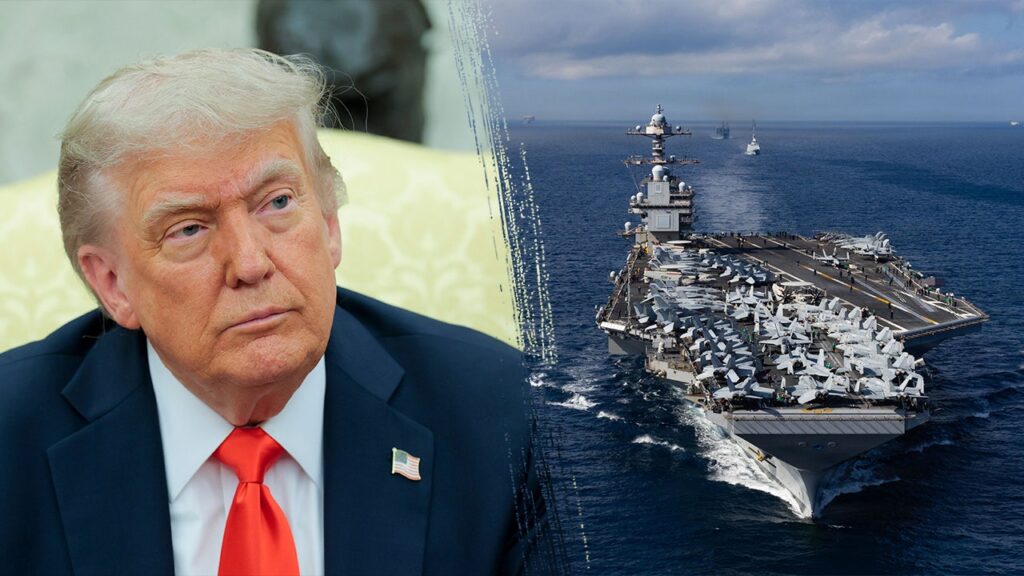Tensions between the United States and Venezuela have escalated significantly, with Venezuela’s government increasing military mobilization in response to the deployment of U.S. warships in the Caribbean. Venezuelan President Nicolás Maduro has accused the Trump administration of attempting to undermine his leadership, while the U.S. has ramped up its military presence in the region under the pretext of combating drug trafficking. As both nations prepare for potential conflict, questions arise about the implications for regional stability and international relations.
| Article Subheadings |
|---|
| 1) Venezuelan Military Mobilization: “Prolonged Resistance” |
| 2) U.S. Military Response and Strategy |
| 3) Maduro’s Accusations and Public Sentiment |
| 4) International Implications and Support for Venezuela |
| 5) Potential Outcomes and Scenarios |
Venezuelan Military Mobilization: “Prolonged Resistance”
In light of the U.S. military presence, Venezuela has undertaken a sizable mobilization of its armed forces, branding this initiative as “prolonged resistance.” Reports indicate that small military units have been deployed to over 280 locations across the country. Their activities reportedly include acts of sabotage and guerrilla tactics aimed at preparing for any potential confrontation with American forces. This represents a significant shift in Venezuela’s military posture amid rising tensions, showcasing the government’s commitment to defending its sovereignty against perceived external threats.
Sources familiar with Venezuelan military planning have noted that these guerrilla capabilities have been in development for several years, reflecting a strategic decision to adapt to challenges posed by the superior U.S. military. Government officials have emphasized that their soldiers are ready to take defensive actions to safeguard national interests.
U.S. Military Response and Strategy
On the U.S. side, the administration has ramped up naval operations in the Caribbean, including the deployment of the USS Gerald R. Ford Carrier Strike Group. This military presence is part of a broader strategy targeting illicit drug trafficking networks that operate in the region. Specifically, the U.S. Navy has commenced a series of strikes against suspected drug vessels, a move deemed essential for curbing the flow of narcotics into the United States.
Chief Pentagon Spokesperson Sean Parnell stated, “The enhanced U.S. force presence in the USSOUTHCOM AOR will bolster U.S. capacity to detect, monitor, and disrupt illicit actors and activities that compromise the safety and prosperity of the United States homeland.” This statement underscores the administration’s commitment to maintaining a strong military posture in the region, illustrating America’s readiness to confront any threat to its interests.
Maduro’s Accusations and Public Sentiment
In response to the U.S. military actions, President Nicolás Maduro has accused the Trump administration of fabricating a scenario for a “new eternal war,” asserting that the U.S. seeks to overthrow his government. During public addresses, Maduro has galvanized national sentiment by proclaiming that the Venezuelan people will defend their homeland against foreign aggression, urging citizens to unify against the perceived U.S. incursion.
Maduro’s rhetoric resonates with a populace that has experienced years of turmoil and hardship, sparking a mix of fear and resistance among Venezuelans. Some citizens believe that the military buildup is necessary for national security, whereas others worry that this situation may lead to further hardship through potential conflict.
International Implications and Support for Venezuela
The international community is closely monitoring the situation, especially given Russia’s stated willingness to assist Venezuela. Russian officials expressed concerns over escalating tensions, urging both sides to de-escalate the situation. Venezuelan Foreign Minister has reportedly reached out to Russia for assistance as the country faces increasing pressure from the U.S.
This partnership reflects a new geopolitical dynamic where regional powers are ready to support Venezuela in its self-defense efforts. The implications of such alliances could shift balances of power in Latin America, complicating U.S. foreign policy strategies. Analysts highlight that any support from Russia could embolden Venezuela to adopt more aggressive resistance strategies.
Potential Outcomes and Scenarios
As tensions escalate between the U.S. and Venezuela, several potential outcomes emerge. One likely scenario involves further military engagement, which could see the U.S. increasing its presence in the region while Venezuela raises the stakes with guerrilla tactics. Such developments could lead to a protracted and complicated military situation.
Alternatively, there may be room for diplomatic avenues, provided that both nations choose dialogue over conflict. While this seems unlikely given current rhetoric, experts suggest that regional instability could force both leaders to reconsider their stances. Ultimately, the effectiveness of either country’s strategies will depend on sustained domestic and international support.
| No. | Key Points |
|---|---|
| 1 | Venezuela has mobilized military units in response to U.S. warships in the Caribbean. |
| 2 | The U.S. has increased its military presence with the USS Gerald R. Ford Carrier Strike Group. |
| 3 | President Maduro has accused the U.S. of seeking regime change in Venezuela. |
| 4 | Russia has indicated its readiness to assist Venezuela amid rising tensions. |
| 5 | Potential military engagement or diplomatic dialogue remains a possibility in the unfolding crisis. |
Summary
The escalating military tension between the United States and Venezuela presents a concerning backdrop for regional stability. With each side poised for possible conflict, the consequences may ripple out across Latin America and beyond. The outcome of this larger geopolitical struggle may hinge not only on military actions but also on diplomatic efforts toward resolution, making the situation one to watch closely in the coming months.
Frequently Asked Questions
Question: Why has Venezuela mobilized its military?
Venezuela has mobilized its military in response to the U.S. deployment of warships in the Caribbean, stating the move is necessary for national defense against perceived U.S. aggression.
Question: What is the U.S. strategy in the Caribbean?
The U.S. strategy involves increasing military presence to combat drug trafficking and enhance national security in the region.
Question: How does international support affect Venezuela’s military stance?
International support, particularly from countries like Russia, may bolster Venezuela’s capability to resist U.S. pressure, complicating the geopolitical landscape.
